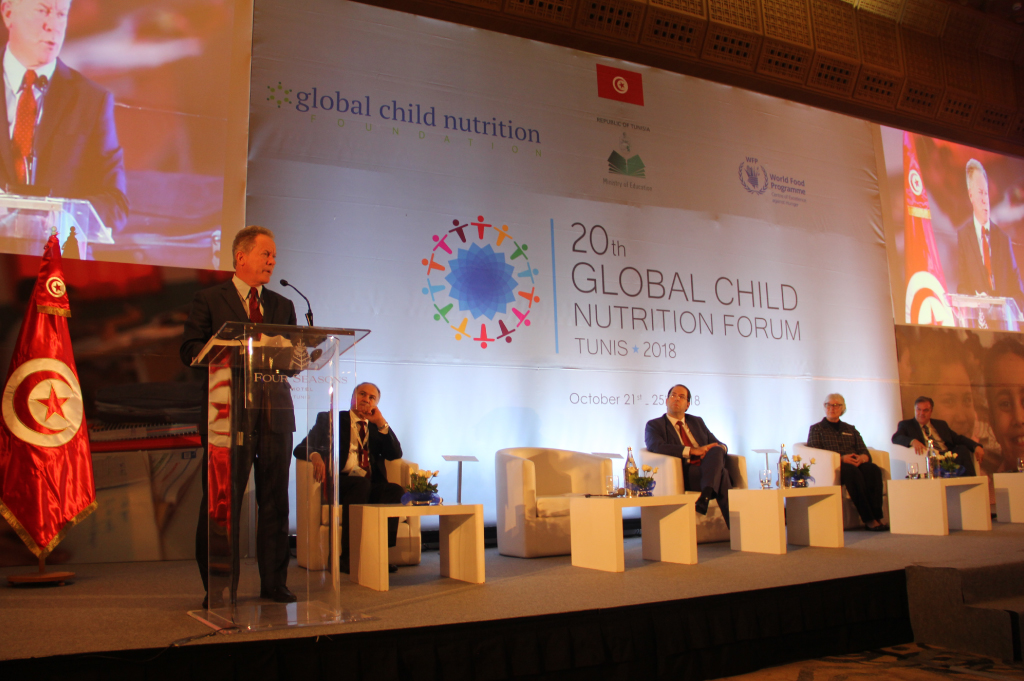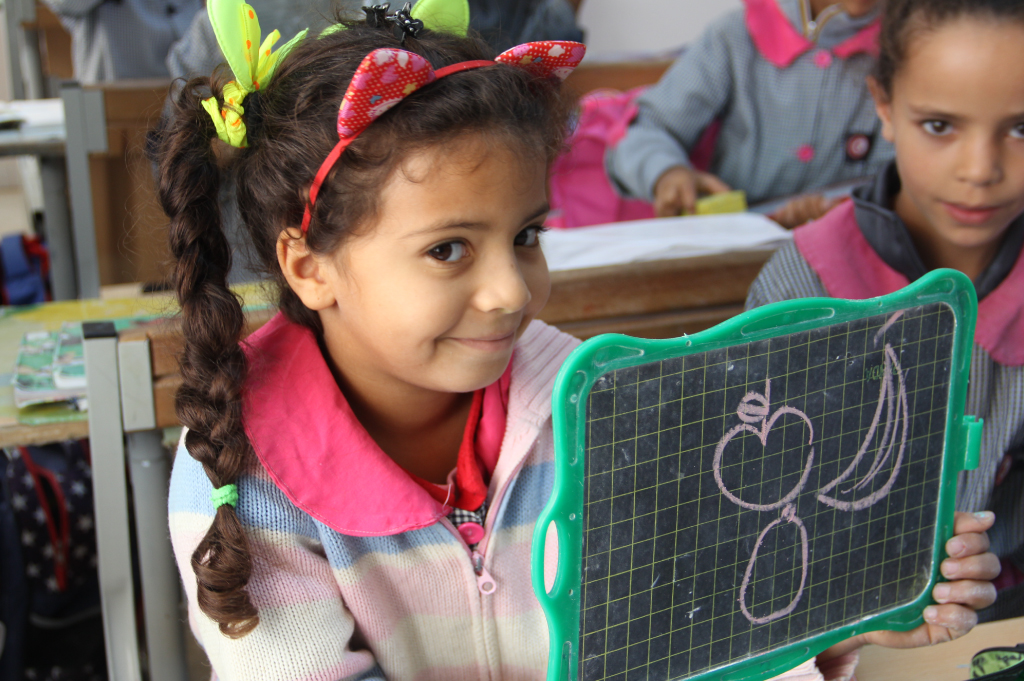
The Global Child Nutrition Forum, the largest annual international conference on school feeding in the world, celebrated its twentieth edition in Tunis from 21 to 25 October. It had a record participation of 363 representatives from 59 countries, including 30 high-level authorities such as ministers and deputy ministers and 197 women. The Forum’s main recommendation was for governments to take ownership of their countries’ school feeding programmes and to gradually provide sufficient and regular funds from national budgets to cover all adolescents and children.
The theme was National School Meal Programmes for Food and Nutrition Security and Multiple Social Benefits, a recognition of school feeding’s potential to positively impact education, nutrition, health, smallholder agriculture, and broader development. “School feeding, nutrition, education are the building blocks for the future and prosperity of the world”, said World Food Programme’s Executive Director Mr. David Beasley in his keynote speech.

School feeding and development
“We know that when we invest in school feeding and food distribution in a sustainable way, migration, teenage pregnancy and child marriage rates drop”, continued Mr. Beasley. He stressed that investing in school feeding programmes makes sense also from the economic point of view. “The cost of war in 2017 was US$ 15 trillion. Can’t we invest US$ 4,6 billion on our children, even though we know the positive impact will be ten times that? Our children deserve better”.
“Political commitment of governments, coordination between the various sectors involved in school feeding, as much as the mobilization of resources from national budgets are essential to achieve sustainable school feeding programmes”, said Mr. Daniel Balaban, director of the WFP Centre of Excellence against Hunger. “I am very proud to be in this room today sharing this moment with so many leaders. The decision to be here at the Global Child Nutrition Forum represents the desire of each of you to make a difference in the lives of millions of children and families. You have the power to do that and I deeply hope that the experiences shared here inspire progress in each country.”
Ms. Arlene Mitchell, executive director of the Global Child Nutrition Foundation, said, “we are here to learn, to teach and to exchange knowledge. School feeding combines education, agriculture and health.” The commissioner for Human Resources, Science and Technology of the African Union, Ms. Sarah Anyang Agbor, stated that “school feeding is a continental strategy to reposition the African education system to achieve the Africa we want.”

Local experience
The Forum happens in a different country every year, for participants to have the opportunity to see first-hand various school feeding experiences. At the opening ceremony, the Tunisian prime minister, Mr. Youssef Chahed, said “Tunisia has achieved 100 percent schooling rates; we are now in transition from ensuring the right to education to ensuring quality education.”
Tunisia’s minister of Education, Mr. Hatem Ben Salem, explained how the country’s school feeding programme fits into its broad education strategy. The programme provides hot meals for 240,000 students in 2,500 schools all over the country. The programme is run by the Ministry of Education in partnership with the World Food Programme and support from Italian Development Cooperation. UNESCO, UNICEF, FAO and the World Bank are also partners, according to Maria Lukyanova, head of the WFP Office for Tunisia and Morocco.
The programme aims to promote local development, cover between 30 and 40 percent of the kids’ nutritional needs, and ensure sustainability. Participants of the Forum divided into four groups to visit different school feeding solutions in Tunisia. They visited one primary school that works with the decentralized model and the food is prepared in the schools. They visited two schools that work with a centralized model and the food is prepared in central kitchens and distributed to the schools of the municipality. And they visited a school food bank, a warehouse that stores and distributes food to schools.




